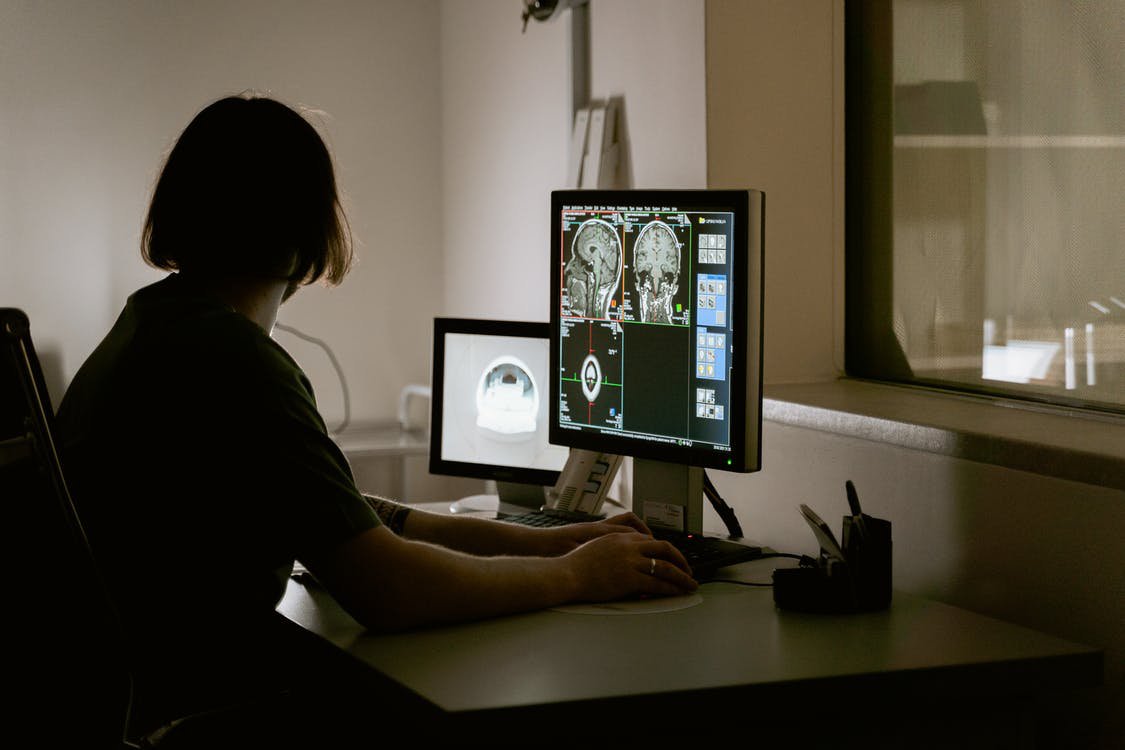The Differences Between Accelerated Nursing Programs and Bridge Nursing Programs

The paths to a nursing career are numerous and diverse. Are you fresh out of high school and you already know that you want to become a Registered Nurse? There are multiple ways for you to achieve this goal. Did you start off as a CNA or LPN to “test the waters” and are now ready for the actual commitment of a nursing career? Good news! Becoming an RN is easier than you might think. Have you tried your hand at a different career first and now you’re starting to think that nursing is actually your calling? There are also possibilities for you to switch direction in your professional future and fulfill your calling.
Where there’s a will, there’s a way.
And with nursing, there are many ways you can reach your dreams. You just have to find the one that fits your goals and previous educational background. In this article, we will walk you through two of these educational routes: the accelerated programs and the bridge nursing programs. We’ll tackle what they are, what are the differences between them, and how to make sure you get the best out of either of them.
Let’s get started.
What Are Accelerated Nursing Programs?
Accelerated nursing programs have one important defining characteristic: they are aimed at non-nursing graduates who want to transition into a nursing career. So, if you have a previous Bachelor’s degree in any non-nursing field – economy, biology, music, or pretty much anything else – you can still become a Registered Nurse and you can do that at an accelerated pace.
Accelerated nursing programs can be found at both the BSN and MSN level and they build on previous learning experiences, helping seasoned learners shift to a nursing career even if their initial graduate studies covered different ground.
If you have a prior degree, an accelerated nursing program is the quickest way to become a Registered Nurse. This type of program usually runs for 12 to 18 months, or in some cases, it may take up to three years to finish.

What Are Bridge Nursing Programs
Bridge nursing programs are a degree option for both entry level and more advanced nurses who want to further their nursing education. Their overarching objective is to bridge the educational gap between one’s current nursing level and the more advanced level of knowledge and skill they wish to possess. You can find bridge nursing programs at all levels. For instance, if you are an LPN and want to learn your way up to an RN position, you can enroll in an LPN-to-RN bridge program. RNs who have their ADN can pursue a Bachelor’s degree by going for an RN-to-BSN degree, and RNs who are interested in getting their Master’s Degree can opt for an RN-to-MSN bridge program.
One of the silver linings of bridge programs is that they take a shorter time to complete than going back to school for a traditional degree would. Generally, they’re also less expensive and allow you to continue working while actively pursuing your degree.
What Types of Programs Are Available?
Each of these programs is available at different levels opening them up to a larger pool of potential learners.
For Accelerated Degrees
For accelerated nursing degrees, aspiring nurses can choose one of two main educational pathways.
First of all, accelerated BSN studies are geared toward holders of a BSN in another field who want to become BSN RNs. They are shorter – 12 to 18 months and focus on nursing-specific courses. Many of the courses will be condensed and large volumes of information will be taught over a fairly short period of time, making the workload all the more demanding. This is necessary in order to ensure that you can graduate at a faster pace. At the end of the program and after you pass the NCLEX, you will have become a BSN-educated Registered Nurse.
Secondly, there is the option for accelerated MSN studies. This is an innovative concept in the field of nursing education. Sometimes it is also referred to as a direct entry nursing program. In line with the accelerated program caveat, the accelerated MSN is adapted for learners with a Bachelor’s in an unrelated field. It combines a BSN and an MSN in one program taking about four years of study focused solely on nursing requirements. The final result is an MSN degree, allowing you to pursue advanced practice nursing roles, like Nurse Practitioner, Nurse Midwife, or others.
For Bridge Degrees
Bridge nursing programs are available for students at different nursing levels with different career objectives. We’ll mention the most common ones in this guide, but there are many more options at your fingertips. Check them out in our comprehensive guide on Nursing bridge programs.
The RN-to-BSN bridge program is designed for diploma or ADN educated RNs who want to propel their career forward by obtaining their Bachelor’s Degree in Nursing. While an Associate’s Degree is still acceptable for RN practice, the BSN is widely recognized as the gold standard for nursing. The reasons for this are multifaceted. BSN nurses are linked with better patient outcomes, lower mortality rates, lower incidences of hospital-acquired infections, and more. On top of that, holding a BSN might soon become a requirement for practicing as an RN. These are some of the reasons why RNs choose bridge programs and go back to school to advance their degree. Most RN-to-BSN degree programs take one or two years to complete and open up the RN to a whole new world of professional possibilities.
Advance your education with Nightingale College’s RN-to-BSN program.
RN-to-MSN is a great opportunity for RNs who want to pursue specialized nursing roles, Clinical Nurse Leader positions, or careers in administration, teaching, or research. This kind of bridge program runs for around three years and upon completion, the learner officially holds an MSN degree.
Leadership positions, advanced faculty roles, and highly specialized nursing positions usually require a doctoral degree. That’s why RNs who want to take their career as high up the professional ladder as possible often turn to BSN-to-DNP or PhD bridge programs. A DNP allows for advanced practice nursing, while a PhD permits you to focus on the research side of the field.

What Are the Benefits of Both Types of Programs?
The Bureau of Labour Statistics projects that we will need more than 221,000 Nurses by 2029. The national nursing shortage is a real problem that our country faces. Education is one way to solve it. The presence of different educational pathways aimed at increasing student capacity, advancing their education, and also academic programs targeting new populations will benefit everyone. We need more nurses and we need them now. Nursing bridge programs or accelerated programs can at least partially shrink the huge gap in the nursing workforce.
But the benefits of enrolling in nursing programs – either traditional, bridge, or accelerated – aren’t only present on the macro level. They benefit RNs directly.
Bridge programs extend the knowledge and skill set of nurses beyond their current level. As a result, they become better trained and more qualified – an invaluable asset for them as professionals.
Extending one’s education also translates into more opportunities for advancement and more choice over your work environment. Plus, RNs with higher degrees tend to earn more money. There’s also a strong preference for BSN nurses among healthcare employers.
Read more about the benefits of getting a BSN qualification through a bridge nursing program.
Advantages are also numerous in the case of accelerated programs. They allow the learners to “change gears” and enter a profession they’re really passionate about. The same benefits we mentioned above – higher pay, career advancement opportunities, wider job pool – still apply for accelerated nurses.
Nurse employers also recognize the benefits of hiring graduates of accelerated programs due to the many levels of skill and education they bring to the table. They are more mature, they have strong clinical skills and are proven to be quick studies with a knack for continuous learning – the essence of a qualified nurse.

What Are The Differences Between the Two?
Sometimes bridge programs are referred to as having an accelerated timeline, since they are offered at a more accelerated pace compared to traditional degrees. But they are not the same as accelerated programs. There are significant differences between these programs.
The main difference is in the demographic they target. Accelerated programs are meant for non-nursing degree graduates, while bridge programs focus on learners with some type of nursing degree who want to advance the level of their nursing education.
Learners who enroll in ABSN programs need to have a form of undergraduate studies under their belt – it can be a Bachelor’s of Science, a Bachelor’s of Arts or a set amount of college credits (requirements may differ among institutions). The ABSN program cohort will be made up of college graduates and career changers.
Bridge programs, on the other hand, require the prospective learner to already hold some type of nursing credential. The largest part of students are already working Registered Nurses who want to go back to school to get their Bachelor’s Degree, Master’s Degree, or other degree.
The time it takes to earn a degree will also vary. Accelerated BSN programs take one to one and a half years of full-time nursing study. Getting an accelerated MSN can last up to three years. The length of bridge programs will vary largely depending on what degree you’re after and what level you start from. An RN-to-BSN can take anywhere from one to two years, RN-to-MSNs typically require two to three years to complete
Possibility to work during your studies. This is quite a big difference between the two programs. While most learners enrolled in bridge programs keep on working throughout their studies, that proves a lot harder for ABSN students. The accelerated nature of the ABSN and the extensive school workload makes it difficult for students to be able to juggle degree and work responsibilities. The curriculum and requirements of accelerated programs are so rigorous that the AACN encourages learners to not work while completing the degree requirements.

What Types of Learners Do They Target?
Nursing students share similar traits regardless of what program they are enrolled in. They need to be empathetic and have a caring attitude. Great time management and communication skills are essential. They also need to be goal oriented, organized, and passionate. In addition to all of these personal characteristics, there are some qualities that are more degree-specific.
Generally, second-degree nursing students are older, highly motivated and with high academic expectations. They are not afraid of the challenge; tend to be competitive and very committed to their studies. Their prior history of learning helps them bring new insight and a new dimension to the nursing learning experience.
Nursing bridge learners are mostly working nurses who are ready to take the next step in their careers. They are organized and great at managing a wide range of responsibilities because they need to find the balance between work, studies and their personal life. Resilience and willingness to learn are also important characteristics of a learner who decided to go back to school and become a higher-educated professional.
What Are the Requirements?
The requirements will vary from one program to the other, especially for bridge programs. For an RN-to-BSN program you’ll need to present an unencumbered RN license, and official transcripts and diplomas. Usually, a GPA of 2.0 is the minimum. Prior to enrollment, you also need to have completed 48 General Education credits.
Accelerated programs are more intense and the admission standards are proportionally higher. Most ABSNs will require a minimum of a 3.0 GPA and will require the learner go through a thorough pre-screening process. Unlike students enrolled in a traditional BSN, second-degree learners won’t have to take liberal arts content classes. Still, some prerequisites may be required, although some of them may have already been completed throughout the course of the first degree. Nursing school administrators need to make sure that the prospective learners will be able to keep up with the intensive credit load and clinical experiences. That’s why accelerated nursing programs have an extra step in their admission process: an interview. The interview is intended to screen students and determine if they’re a good fit for the challenging program.

Tips to Succeed at Both
While getting into the nursing program of your choice is already a big accomplishment, the real work starts after you have received your acceptance letter in the mail. Whether you’re pursuing a bridge or an accelerated program, you want to make sure you give it your best and ace it. We won’t give you false hope, it’s not going to be easy. But we have some tips for you that will make the nursing school experience less daunting.
- A support network will go a long way. It may be friends, family, or coworkers but having the support of others while you embark on this challenging nursing journey will be indispensable. From listening to you complain about how hard the last exam was to babysitting the kids while you are scheduled for clinical rotations, it’s very helpful to have people to count on.
- You come first. Sometimes students tend to lose themselves in their studies thinking that they can’t afford even the shortest break. But taking care of yourself will only improve your performance. Make sure you sleep and eat well, take breaks when you need them, and you’ll end up being more efficient.
- Nurses need nurses. And nursing students need other nursing students. Connecting with your peers is important, even if you’re pursuing an online degree. You can discuss course material, help each other study, or just feel less isolated. Nobody knows better what you’re going through than people going through the exact same thing.
- Find the study habits that work for you and use them. There are as many learning styles as there are learners. It’s important to figure out what’s the best way for you to retain information and use it to your advantage. Are you an auditory learner? Maybe recording yourself reading the course material and then listening to the recordings will work for you. Are you more of a visual learner? Make note cards of the things you need to remember. Do you study better at night or in the morning? Alone or with a study group? Developing efficient study habits will make the challenges of nursing school seem a lot more surmountable.
- Proper time management is key. You’re going to spend a lot of time studying. In addition to that you probably have many other responsibilities: work, a family, a social life. Juggling all of them is not easy. But there are tools that help. Planners, journals, Google calendars – choose what works for you.
- Get your family and/or partner on board. You’re probably aware of what you’re getting yourself into by enrolling in either an accelerated or bridge program. But what some fail to account for is the way in which you going back to school will affect those closest to you. Once you start studying, you’ll have less free time, more responsibilities and the amount of stress you’re under will skyrocket. That’s why having your family’s full support in this endeavor is of the utmost importance. You really need that support network.
- Don’t lose track of the final goal. At times, it may seem like getting your degree takes forever. You may lose motivation and may feel that there’s no end to all the clinicals, exams, test prep and lectures. It’s then when you need to remember your final goal: you’re going to be a nurse and your objective is to get there faster. Your life may be crazy right now, but that is only temporary.

What’s in Store For You Next?
The need for nurses is unquestionable. The job outlook for the profession is great. Salaries are going up, and so are benefits. Add to that the fact that every day you go in to work you actively make someone’s life better. We’d say that being an RN is a pretty great opportunity.
Whether you’re advancing your education or starting nursing from scratch as a second degree learner, there are many ways for you to fulfill your vocation. Traditional programs, Bridge programs, accelerated programs – you should choose the one that fits your educational background, your needs, and your goals. Regardless what path you take to get there, the nursing profession will prove worth the journey.
Ready to advance your education? Enroll in Nightingale College’s RN-to-BSN online bridge program!

